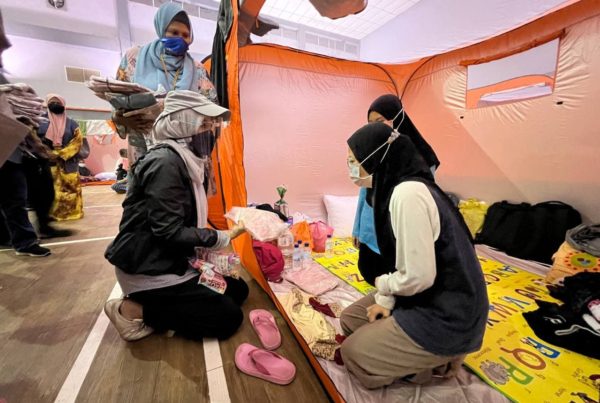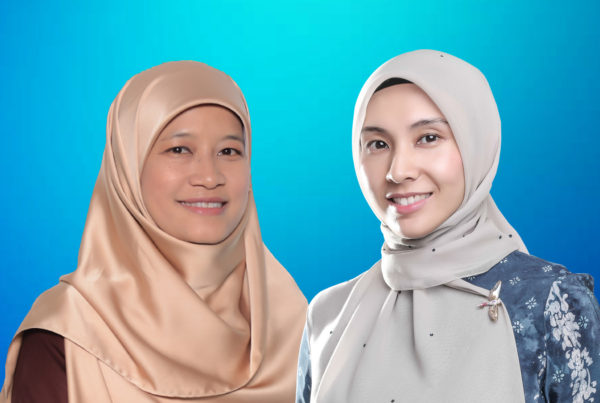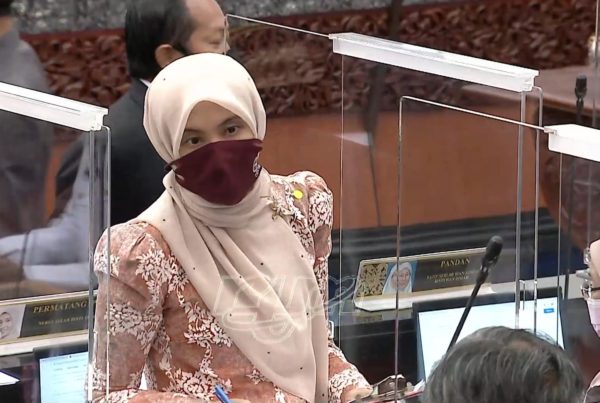One of the things that struck me as I greeted 2016 was Richtopia’s 250 Most Influential Women Leaders ranking. I had earned the 108th place – which is not necessarily indicative of my influence in the Malaysian government’s decision making process. Perhaps measurement was made in terms of actual charges and police investigations against me. I cannot claim to have spent more than one night in prison; but at the least I am confident of being the first female MP arrested for speaking out in Parliament!
As International Women’s Day passed this year (8th March 2016) I realize it is now close to a year since I was arrested for sedition; and more than a year since my father, Anwar Ibrahim – the then Opposition Leader was imprisoned. There is no comparison between the two incidents – my one night was but a mere glimpse of his years being detained for his principled conviction – more than a tumultuous ten years for being a prickly conscience against the government of the day.
If some were to ask what I remembered most from being a second term female legislator, I would say – it is my father’s trust and firm resolve to empower me in being all that I can be.
Women voters constitute more than 52% of all Malaysian electorates. Female legislators in parliament hover at a miniscule 10%; save for Anwar Ibrahim’s decision to adopt 30% female representation at all levels as my party’s policy – bolstering women’s representation to in the opposition held state government.
Malaysia is filled with successful women at all levels of society – from spirited home makers, to professionals with the uncanny skill of managing work-life balance – to our fiercely respected female Governor of Central Bank.
We have reached 52.4% female participation in the labour force – which probably beckons a friendlier, flexible working policy to address 75% of university students consisting of women.
The above are the usual statistics depicted in articles. The rarer ones I think needing redress is the 68,000 people were placed in Malaysia’s subpar immigration detentions in 2013 – mainly Burmese, Indonesians, and Bangladeshis. Our national human rights institution, SUHAKAM, reported that 1,406 children were detained in detention centres (immigration depots) from January to October 2013.
Section 34(1) of the Immigration Act provides that persons may be detained for “such period as may be necessary” pending removal. Immigration detainees generally spend between two months and two years in detention.
Even genuine refugees to Malaysia face the same predicament as illegal immigrants.
According to Aljazeera, “Malaysia is not a signatory to the UN Convention on Refugees and refugees and asylum seekers who find themselves in the country lead a precarious existence on the margins of society, at risk of arrest as “illegal immigrants” as Malaysia makes no distinction between undocumented workers and refugees. Most live in the cities, but they aren’t allowed to work or send their children to school.
The report continues, “…at the end of September (2015), there were more than 158,000 refugees in Malaysia, according to the UNHCR, most of them from Myanmar. But the country also has significant communities of people from countries including Afghanistan, Pakistan and Iraq, as well as 1,110 Syrians.”
The hypocrisy of the Malaysian government is clear to be seen when just last October Malaysia’s Prime Minister, Najib Razak, announced his plan to take in the Syrians at the United Nations. In total, 3,000 Syrian refugees were offered asylum while the ones already in Malaysia were still leading a life in limbo.
As I spent the night in jail last March, I was greeted with the crying of two small Vietnamese children. Their mother was breastfeeding the younger son, while the older one had to rely on the sympathy of prison personnel for disposable diapers and other amenities. Indeed, how can we as a society permit children to be treated in such a way?
I am mother to two young children. I cannot imagine that whilst we keep looking at the ostensibly more important indicators of growth and success, we forget to take a closer look in our own less glamorous backyards – in our prisons, immigration detention centres, and the slums which exist even in a middle income nation such as Malaysia.
Most recently the jailing of a single mother caught our nation’s attention. S. Sellamah, 36, was jailed for five days after failing to pay RM200 (44Euro; $51; £35) for stealing a two-kilogramme packet of Milo for her 2-year-old child. After spending 1 night in jail, it took the kind hearted act of an anonymous good Samaritan who paid the RM200 fine to spare Sellamah from another 4 days in her cell. While her sentence in itself is heart-wrenching enough, the fact that a fellow Malaysian mother had to steal a packet of chocolate drink for her young child is deeply disturbing.
All such experiences should serve as reminders of dispensing policies predicated on social justice as we traverse the future intertwined with global shocks.
I believe the idealism that continues to thrive in Liberal International is one that provides hope for a better and sustainable future.
Let’s resolve to provide more opportunity to defend and highlight the plight of women and children. I hope that each one of them could bask in the support of adults – in providing trust in their capabilities and encouragement for them to be whatever they can be. Just like my father did for me.
Sincerely from me,
NURUL IZZAH ANWAR
* A version of this article first appeared on Liberal International Human Rights Bulletin as an Expert Opinion



